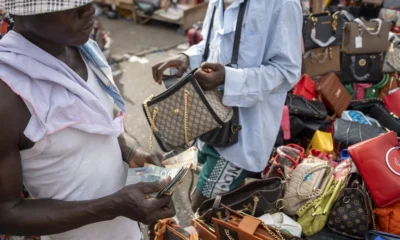News
Cabbage and Rice Prices Explode as Japan Battles Inflation
Published
8 months agoon
By
M N Ridwan
Japan is facing a sharp rise in rice prices, with new data revealing that the staple grain cost nearly twice as much in March 2025 as it did a year ago.
According to government statistics released Friday, rice prices surged a staggering 92.5 percent, contributing to Japan’s rising inflation concerns.
This dramatic spike has been blamed on a mix of poor harvests due to 2023’s record-breaking heat, panic-buying sparked by last year’s “megaquake” warning, and a sharp rise in demand driven by the return of mass tourism. Reports also suggest some traders are hoarding rice, pushing prices even higher.
In response to the growing shortage, the Japanese government began auctioning off emergency rice reserves last month — the first time since the stockpile system was introduced in 1995. Around 210,000 tonnes have already been released, with another 100,000 tonnes planned for auction later this month.
Grain prices overall rose 25.4 percent, but rice was by far the most impacted. Meanwhile, core inflation — which excludes fresh food — rose 3.2 percent in March, up from 3.0 percent in February. Even without energy and fresh food, prices were up 2.9 percent year-on-year.

Cabbage prices also shocked consumers, jumping 111.6 percent in a similar trend driven by poor weather and crop damage.
These developments are putting pressure on the government of Prime Minister Shigeru Ishiba, as households face increasing costs for daily essentials.
There is growing speculation that the Bank of Japan may consider a rate hike, with inflation consistently staying above the 2 percent target for nearly three years.
However, uncertainty surrounding global trade — especially the U.S. under President Donald Trump’s latest tariff threats — could cause Japan’s central bank to tread cautiously.
As Japan grapples with both “rice shock” and “cabbage shock,” consumers are left feeling the squeeze at supermarkets — and calling for stronger government action.











